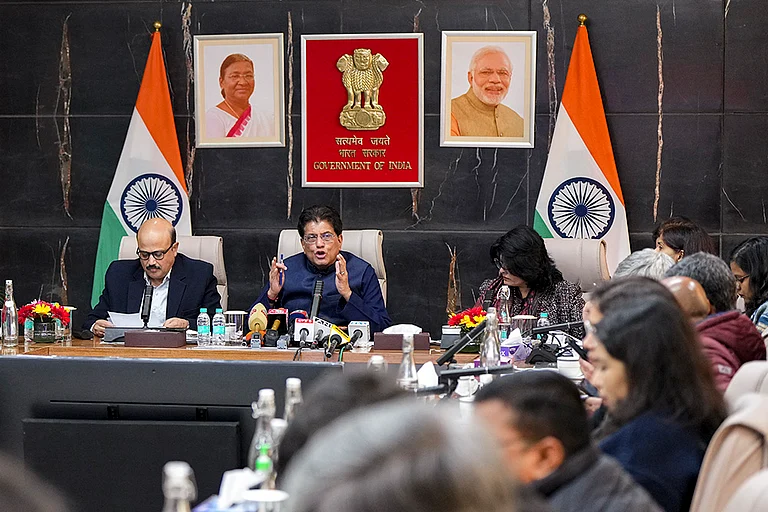
Summary of this article
Ministry identifies 275-300 provisions for decriminalisation, replacing jail with fines to ease compliance and boost investor confidence.
Follows 2023 Act (183 changes in 42 laws) and 2025 bill (288 decriminalisations)
Goyal urges traders to nominate more tweaks, framing it as trust-based governance to propel India's economic self-reliance.
Commerce and Industry Minister Piyush Goyal announced on Tuesday that the Ministry has kicked off preparations for the third edition of the Jan Vishwas Bill, aiming to decriminalise around 275-300 minor business offences by replacing criminal penalties with monetary fines, fostering a trust-based ecosystem for entrepreneurs and everyday citizens. Speaking at a conference of domestic traders, Goyal highlighted the ministry's proactive identification of these provisions across various central acts, building on the momentum from prior iterations to slash compliance burdens and eliminate the "fear of imprisonment" for procedural lapses that stifle innovation and growth. He invited the trading community to contribute suggestions for additional reforms, positioning the bill as a cornerstone of the Modi government's "Virasat to Vikas to Vishwas" narrative, transforming regulatory hurdles into seamless enablers of economic aspiration.
This latest push follows the Jan Vishwas (Amendment of Provisions) Act, 2023, the inaugural edition that overhauled 183 provisions in 42 central laws administered by 19 ministries, and the 2025 bill currently under Lok Sabha's Select Committee scrutiny, which proposes decriminalising 288 offences while amending 67 more for "ease of living" under 16 statutes. Seven NDA-ruled states have already emulated the framework with their own decriminalisation laws, signaling a federal cascade toward lighter-touch governance that could propel India up global competitiveness charts. Goyal's call to action underscores a collaborative ethos, where industry input could expand the bill's ambit, potentially covering sectors like manufacturing and services hit hard by archaic penal codes.
As the Select Committee gears up to report by Parliament's next session, Jan Vishwas 3.0 emerges as a beacon of regulatory renaissance, promising to unshackle small businesses from the specter of courts and cuffs, and redirect energies toward value creation in a nation eyeing $5 trillion economy status.






















